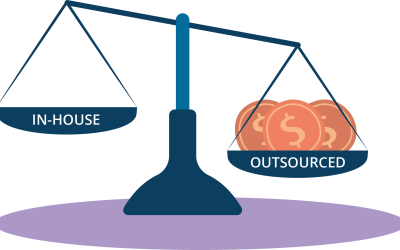The clinical laboratory space has expanded greatly in the wake of COVID-19, and the interest in starting and owning laboratories continues to grow as an influential investment in the healthcare field. Forming a lab comes with numerous key decisions to make in order to be successful before the first test is ever conducted.
Building Your Test Menu
Choosing the tests your new lab will offer should be a well considered process. Your test menu will affect patient base demographics, operational workflows, instrumentation, billing, and revenue. Market research and analysis into healthcare trends, the location of the lab, competition, and the latest technological advancements can help better determine where to begin when considering your facility’s specialty. It is also crucial to consider the requirements and regulations that come with running and billing for specific tests. Hiring professionals to accomplish this task and provide informed counsel may be most beneficial for those starting a lab for the first time or in a new specialty.
Selecting Equipment
Selecting the equipment that your lab will utilize requires strategic thinking and researching. Machines and tools should work to fit within your lab environment and only include features you intend to use now or down the road if you diversify your testing menu. Laboratory stakeholders must decide if they will opt to buy new equipment straight from manufacturers to take advantage of warranty and service contracts. Alternatively, equipment can be purchased from third party vendors that offer discounts and may suit the needs of your clients better.
Maintenance and versatility of equipment should also be taken into consideration when shopping for a startup lab. Being informed on the life-span and requirements for properly functioning lab equipment can be crucial in the decision-making process.
Collecting Revenue
The long-term growth of a lab will almost solely rely on the ability to effectively collect on the allowables that a laboratory outputs. Laboratories of any size or specialty succeed when they navigate to remain profitable as federal regulations such as PAMA and Medicare fee schedules shift. In-network status can be very difficult to achieve for many startup labs unless they are in an area devoid of reliable testing options; diversification of test menu can help a lab show value to commercial carriers in more saturated areas. When starting a lab, laboratory owners and financial officers must consider what billing environment will best support their goals and functionality. Many factors will play into this decision such as the efficiency of the workflow, staffing capabilities, expertise specific to laboratory billing, and overall transparency into the facility’s financial performance short and long term. Startups should weigh their options of in-house or outsourced billing services as it is one of the most crucial decisions in establishing a profitable lab.
Attaining Certifications and Compliance
Accreditations and regulations governing lab activities ensure quality control by allowing credible third parties to assess and certify your lab’s ability to perform specific tests precisely, accurately, and safely. Accreditation also signifies to potential clients that they can rely on and trust your lab for their needs. Assessing the long term goals of your facility can help determine what to prepare for as far as frequent compliance training and education as well as requirements necessary to run low to high complexity tests that may be added to a testing menu.
CLIA (Clinical Laboratory Improvement Amendments) registration and compliance is standard for most startup laboratories, and further certifications can be obtained depending on the complexity of the tests that will be performed. CAP certification is a common aim for many new labs and can be valuable in communicating the clinical qualify of your lab to potential customers.
Staffing and Vendors
Labor accounts for 50% to 70% of direct clinical laboratory cost, thus the management of staffing levels is central to overall laboratory management expenses. With too high a staffing level, laboratory operations are inefficient; too low a staffing level increases the potential for errors or slow output of billable tests to collect on. Determining cost-effective staffing levels without compromising quality is a complex process, and lab stakeholders can consider third party vendors that can alleviate these needs as well.
Outsourcing laboratory services such as billing, marketing, validation processes, and compliance education is an efficient option that startups particularly can benefit from as they can focus on fine tuning their facility’s position in the market, establishing clientele relationships, and organizing business plans.
Start Your Clinical Laboratory with A Team of Professionals
Whether you’re opening a new laboratory for your practice, expanding into new locations, or forming a facility to begin running entirely new tests that your team has developed, starting a clinical laboratory is a complex process that should be structured for success from the beginning. Work with a laboratory management and billing company that will provide expert services and true counsel to see that goals for your lab come to fruition. Contact our team to learn more about our unmatched service that we have provided to startups all over the country of all specialties.
Read Our Latest Posts
How Physicians Can Reach the Full Potential of Ancillary Laboratory Services
Ancillary services play a crucial role in enhancing patient care while supporting the operational and financial health of physician practices. Among these services, ancillary diagnostic services, such as laboratory testing, are integral to timely diagnoses, effective...
UnitedHealthcare’s Z-Code Requirement for Genetic Testing Claims Impacts Laboratories and Payers
UPDATE: 10/1/2024 UHC began phase 3 of the DEX Z-codes registration. "Claims eligable for phase 3 tests with dates of service on or after Jan. 1, 2025, need to include the appropriate Z-Codes to be considered for reimbursement." Genetic and pathology laboratories are...
Laboratory Medical Billing – Decisions of Profitability
The Complex Landscape of Laboratory Medical Billing The success of a lab truly lies in the foundation of the success of it's laboratory medical billing process. Without proper reimbursement, labs can struggle to remain profitable despite quality volume and test menus....




